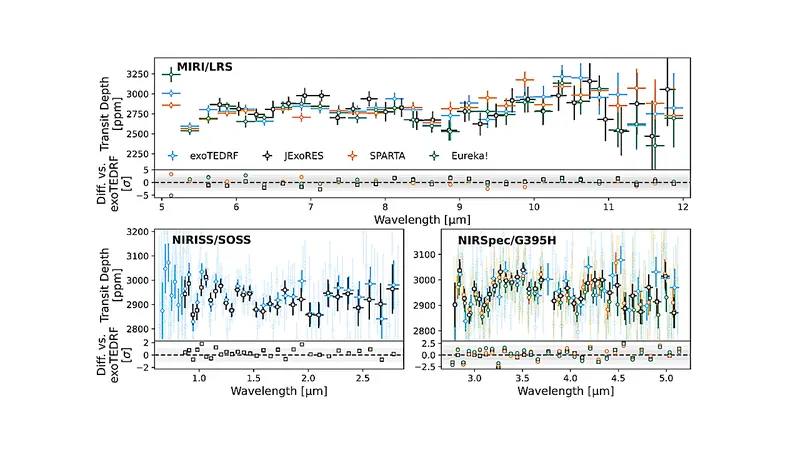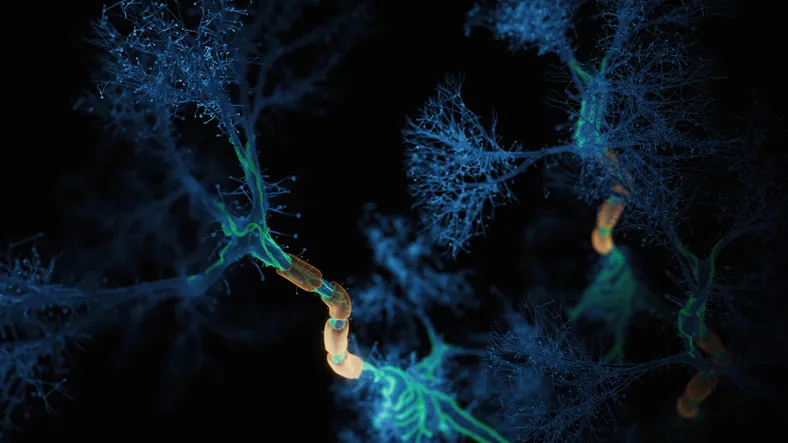
K2-18 b's Atmosphere Debunked: No Signs of Biomarkers DMS and DMDS!
2025-05-20
Author: Nur
A Stunning Revelation from the Stars!
In a groundbreaking study involving the temperate exoplanet K2-18 b, researchers initially thought they spotted signs of life in its atmosphere. Recent observations from the James Webb Space Telescope (JWST) hinted at a liquid water ocean, raising hopes for possible biological activity. However, the tantalizing suggestions of the biomarkers dimethyl sulfide (DMS) and dimethyl disulfide (DMDS) have been put to the test.
Unraveling the Mystery of K2-18 b's Atmosphere!
Despite initial claims of DMS and DMDS detected via the JWST using cutting-edge instruments NIRISS, NIRSpec, and MIRI, subsequent analyses conducted by a team of scientists revealed something surprising: insufficient evidence to support these claims. By cross-examining the entire spectrum of K2-18 b, the researchers found that the atmospheric signals attributed to these potential biomarkers are far from concrete.
The Scientific Method at Work!
The investigators employed three established data-processing pipelines alongside two retrieval codes to analyze the observations' spectral data meticulously. This comprehensive analysis covered a vast spectrum range (0.6 – 12 micrometers), ultimately leading to a clear conclusion: the supposed biomarkers DMS and DMDS do not hold statistical significance in K2-18 b's atmosphere.
What Went Wrong?
The study indicates that any marginal indications of DMS or DMDS were primarily a result of limiting the models to fewer molecules. Surprisingly, other hydrocarbons in the atmosphere, such as ethane, displayed similar absorption patterns, casting doubt on the initial findings.
The Road Ahead for Exoplanet Research!
The researchers estimate that at least 25 additional MIRI observations would be necessary to draw any definitive conclusions regarding DMS or DMDS. Their findings not only challenge previous claims but also highlight the complexities involved in interpreting exoplanet atmospheres.
A Cautionary Tale for Astrobiology!
As the quest for extraterrestrial life continues, this study serves as a reminder of the rigorous standards required in astrobiology. While K2-18 b's ocean remains an exciting prospect, the lack of definitive evidence for these biomarkers tempers hopes, steering the scientific community towards more thorough investigations in the search for life beyond Earth.



 Brasil (PT)
Brasil (PT)
 Canada (EN)
Canada (EN)
 Chile (ES)
Chile (ES)
 Česko (CS)
Česko (CS)
 대한민국 (KO)
대한민국 (KO)
 España (ES)
España (ES)
 France (FR)
France (FR)
 Hong Kong (EN)
Hong Kong (EN)
 Italia (IT)
Italia (IT)
 日本 (JA)
日本 (JA)
 Magyarország (HU)
Magyarország (HU)
 Norge (NO)
Norge (NO)
 Polska (PL)
Polska (PL)
 Schweiz (DE)
Schweiz (DE)
 Singapore (EN)
Singapore (EN)
 Sverige (SV)
Sverige (SV)
 Suomi (FI)
Suomi (FI)
 Türkiye (TR)
Türkiye (TR)
 الإمارات العربية المتحدة (AR)
الإمارات العربية المتحدة (AR)